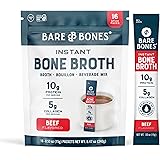Why Settling for a Basic Website Could Be Killing Your Business Growth — Here’s What the Top 1% Are Investing In Instead
Ever caught yourself wondering if your business website is more “mom-and-pop shop” or “big league enterprise”? That decision—your digital storefront or your e-commerce powerhouse—can crank your business into overdrive or leave you spinning your wheels. In a world where your website isn’t just a place to drop info but a full-throttle engine for customer engagement, sales conversions, and brand muscle, choosing between a traditional website and a premium enterprise solution isn’t just a tech decision—it’s a strategic move. The first promises simplicity and thrift; the latter, scalability and heavy-duty customization. Which one tips the scales for your unique hustle? Buckle up, because we’re diving deep into the nuts and bolts of each option to help you decide where your business belongs on the digital spectrum—and why settling for anything less than the right fit could cost you way more than you think. LEARN MORE
![]()
Key Takeaways
- Traditional websites are affordable, simple, and ideal for small businesses or startups needing a quick online presence.
- Premium enterprise solutions are custom, scalable, and feature-rich, designed for larger or growing businesses with complex needs.
- Traditional websites offer limited functionality, while enterprise solutions integrate advanced tools like e-commerce, CRM, analytics, and enhanced security.
- The best choice depends on your business size, goals, and growth strategy.
In today’s digital world, your website is the heart of your business. It’s more than just a static page—it’s a powerful tool for customer engagement, conversions, and business growth. But with so many options available, how do you decide between a traditional website and a premium enterprise web solution? Which one is best suited for your business needs? Let’s explore.
What is a Traditional Website?
A traditional website is a straightforward, basic platform typically used by small businesses or startups. These websites are simple in structure, featuring core pages like Home, About, Contact, and Products/Services. Here’s what you can expect:
- Basic Design and Structure: Simple layouts with essential navigation and information.
- Limited Features: Basic functionalities like contact forms, product listings, and newsletter sign-ups. Advanced features such as e-commerce and CRM integrations are often missing.
- Lower Cost: More affordable to design and maintain, making it an attractive choice for businesses with limited budgets or those just starting out.
Traditional websites are an excellent option if you’re looking for a quick, affordable way to establish an online presence.
What is a Premium Enterprise Solution?
A premium enterprise solution is a high-end, custom-built website designed to meet the complex needs of larger organizations or growing businesses. These solutions go beyond basic functions to provide dynamic, feature-rich platforms. Key features include:
- Advanced Functionality: Integrated e-commerce platforms, CRM systems, CMS, user portals, advanced data analytics, and more.
- Customization: Tailored design and functionality, ensuring your website aligns with your specific business needs and goals.
- Scalability: Built to scale as your business grows, handling high traffic, large product catalogs, and complex data without performance issues.
- Security: Enhanced security protocols, including SSL certificates, encryption, and multi-layer authentication, protecting your website and customer data.
- Long-Term Support: Premium solutions offer ongoing maintenance, updates, and technical support, ensuring your website remains secure and optimized.
Premium enterprise solutions are ideal for businesses that require more complicated infrastructure & features.

Key Differences Between Traditional Websites and Premium Enterprise Solutions
1. Complexity of Your Business Needs
- Traditional Websites: Best for small businesses with simple needs like displaying products or services and providing essential information.
- Premium Enterprise Solutions: Ideal for larger companies or businesses with complex requirements, such as custom workflows, e-commerce systems, CRM, and customer data management.
2. Scalability
- Traditional Websites: While they work well for businesses just starting, traditional websites are often unable to handle high traffic or advanced features as your business grows.
- Premium Enterprise Solutions: These websites are built to grow with your business, easily adapting to new needs, additional features, and large-scale operations without compromising on performance.
3. User Experience and Customization
- Traditional Websites: Offer basic layouts with limited customization, often providing a one-size-fits-all solution.
- Premium Enterprise Solutions: Highly customizable and designed with a focus on user experience (UX). They provide personalized user interactions based on behavior and preferences, leading to higher engagement and conversions.
4. Performance and Speed
- Traditional Websites: Performance isn’t usually an issue for small, low-traffic websites. However, as the site grows, issues like slow load times and poor performance may appear.
- Premium Enterprise Solutions: These websites are optimized for performance, utilizing advanced caching, custom backends, and global server distribution to ensure fast loading times even during peak traffic.
5. Cost and Resources
- Traditional Websites: Traditional websites are generally more affordable to develop and maintain, making them a popular choice for small businesses or those with budget constraints.
- Premium Enterprise Solutions: While these solutions require a higher initial investment, they offer long-term value by providing advanced functionality, better security, and the ability to scale as your business grows.
Which Option is Right for Your Business?
The choice between a traditional website and a premium enterprise solution depends on your business’ size, needs, and goals.
- Traditional Website: If you’re a small business or startup with basic needs, a traditional website offers an affordable, easy-to-manage solution to establish your online presence quickly.
- Premium Enterprise Solution: If you’re an established business aiming for growth and scalability, a premium enterprise solution provides the advanced features, security, and support needed for long-term success.

FAQ
What is the main difference between a traditional website and a premium enterprise solution?
A traditional website is simple and affordable, while a premium enterprise solution offers advanced features, scalability, and customization for complex needs.
Who should choose a traditional website?
Small businesses and startups that need a cost-effective, straightforward online presence with basic functionality should consider a traditional website.
Who should choose a premium enterprise solution?
Established or fast-growing businesses that need scalability, advanced integrations, and stronger security should invest in a premium enterprise solution.
Are premium enterprise websites worth the higher cost?
Yes, for businesses that require scalability, performance, and advanced tools. The long-term benefits often outweigh the upfront investment.
Can a traditional website be upgraded later?
Yes, but it may require a full redesign or migration if the business outgrows its current platform. Premium enterprise solutions are more future-proof.
Which option provides better security?
Premium enterprise solutions come with advanced security protocols, while traditional websites usually offer only basic protections.
How do I decide which is right for my business?
Evaluate your business’s size, growth plans, required features, and budget. Smaller businesses may start with traditional sites, while larger ones benefit from enterprise solutions.



















Post Comment